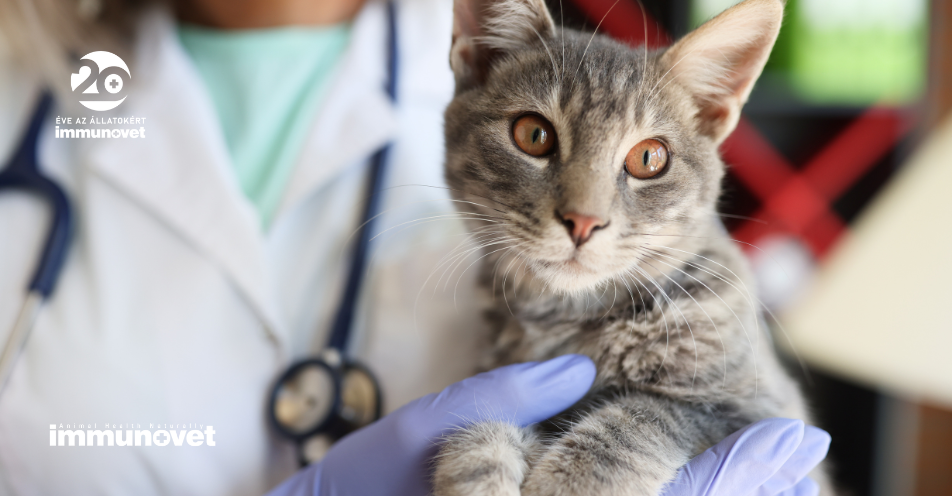Infectious peritonitis of cats

Most cats are already infected with coronavirus early in their lives. There is no vaccine to prevent the disease, but the risk of infection can be reduced by strengthening the cats' immune system.
Feline infectious peritonitis (FIP) is a viral disease that only affects cats. The disease is caused by the feline coronavirus and can cause a range of symptoms, including fever, lethargy and loss of appetite. Unfortunately, FIP is often fatal.
How can our cat get FIP?
Most cats are already infected with coronavirus early in their lives. Cat coronavirus infection is very common. The infection can be accompanied by complaints of diarrhea, but individuals with a stronger immune system can even experience it without symptoms. The fact that a kitten has been infected with the coronavirus does not mean that it also has FIP. The virus that causes diarrhea normally occurs only in the intestinal tract, but unfortunately it mutates uniquely in each cat, becomes able to enter the white blood cells of cats and with them reaches many areas of the body. The chance of developing a mutation is very low. The mutant virus itself cannot be spread between cats, but in populations with a very high incidence of the coronavirus that infects the intestinal tract, the number of animals infected with the mutant virus is also higher.
What is wet FIP or dry FIP?
Two types of FIP can be distinguished, based on the symptoms they cause. In the case of both forms, cats infected with the mutant virus will have uncharacteristic symptoms, such as lethargy, loss of appetite and weight loss. In the case of dry FIP, no other visible symptoms are associated with the infection, perhaps nervous system symptoms, jaundice can be observed, on the other hand, wet FIP gets its name from the fact that it creates an accumulation of fluid in the abdominal cavity and/or the chest cavity.
How is FIP diagnosed?
Diagnosing dry FIP is difficult. Infection is suspected based on symptoms that are incurable and cannot be attributed to other diseases, and changes in blood laboratory parameters can also help establish the diagnosis. In order to pronounce the diagnosis, it is necessary to rule out other diseases associated with fever and loss of appetite. In the case of wet FIP, the fluid collection has a characteristic yellowish, stretchy and sticky appearance due to the high protein content. Detection of the mutant virus in the fluid can lead to a definite diagnosis.
What should we do if we suspect FIP infection in our cat, what treatment options are available?
If the disease is suspected, it is important to consult a veterinarian immediately. Although there is no officially proven cure for the disease, our veterinarian can help treat your cat's symptoms and make their life as comfortable as possible. Based on recent experience, Remdesivir and GS-441524 are antiviral drugs that have shown some efficacy against coronaviruses, including the coronavirus that causes feline infectious peritonitis (FIP). However, it is important to note that although both drugs have been tested in FIP-infected cats, they are not yet approved for use in FIP-infected cats. Remdesivir and GS-441524 both work by interfering with the virus's ability to reproduce, which can help slow disease progression and ease symptoms. Both drugs have shown promise in preliminary studies in cats with FIP, but more research is needed to determine their safety and effectiveness. Groups have been formed on social media with the owners and veterinarians of cats who have contracted the dreaded disease, who support each other and try to help the sick cats to recover. Fortunately, there is now hope for the recovery of infected cats.
How can the disease be prevented?
There is no vaccine to prevent the disease, but by strengthening the cats' immune system, we can reduce the risk of infection, for which we heartily recommend Immunovet!
